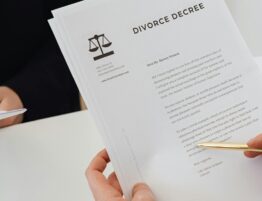In Arizona, exercising your First Amendment right to protest can sometimes lead to unexpected consequences. This includes being criminally charged for your actions as a protester.
When protesters take to the streets to speak out against injustices or rally for change, they may find themselves in a potentially volatile situation where the police may get involved. If you have been charged with a crime while protesting in Arizona, it is important to seek legal advice immediately.
The Law Office of Daniel Hutto specializes in cases involving protesters and their legal rights. If you have been charged with a crime while exercising your right to protest, do not hesitate to contact our office for expert legal assistance. Our experienced team will work tirelessly to defend your rights and ensure that you receive fair treatment under the law.
Here’s what this article will cover:
- What are Your Rights as a Protestor
- Do You Need a Permit to Protest in Arizona?
- What are the Possible Criminal Charges for Protesting
- What are the Rights of Police Officers
- Have Your Rights Been Violated?
How an Arizona Criminal Defense Attorney Can Help
Our Phoenix Criminal Defense Attorneys are Here to Help!
What are Your Rights as a Protestor
In Arizona, both federal and state laws safeguard the right to protest. Here’s a comprehensive overview of your rights:
Freedom of Speech and Assembly
The First Amendment of the U.S. Constitution guarantees your right to free speech and peaceful assembly. Additionally, Article II, Section 6 of the Arizona Constitution reinforces these protections, explicitly guaranteeing freedom of speech, press, and peaceful assembly. You can gather in public forums like streets and sidewalks to express your views, provided you follow reasonable time, place, and manner restrictions.
Permits and Permissions
Protesting on public sidewalks and streets typically does not require a permit, as long as the protest does not obstruct traffic or violate other laws. However, large gatherings or events that require closing streets may necessitate a permit. Specific requirements vary by city, so check local ordinances beforehand.
Recording Public Officials
Under Arizona Revised Statutes § 13-3732, individuals are generally allowed to record public officials, including police officers, while they perform their official duties in public spaces. However, recordings must not interfere with law enforcement operations or obstruct officers from carrying out their duties.
Protection Against Police Misconduct
The Fourth Amendment protects individuals from excessive force and unlawful detention. Police officers must use only reasonable force necessary to control a situation. Additionally, Arizona Revised Statutes § 13-403 prohibits law enforcement officers from detaining individuals without reasonable suspicion or probable cause.
Legal Representation and Due Process
If arrested during a protest, you have the right to legal representation and due process under the Sixth Amendment. Arizona law provides additional protections under Arizona Revised Statutes § 13-3888, which requires arresting officers to inform you of your right to counsel.
Assembly Restrictions and Curfews
Local governments may impose curfews or restrict assembly to specific times and locations to maintain public safety. However, these restrictions must be content-neutral and not target a specific group based on their message.

Do You Need a Permit to Protest in Arizona?
While not all protests require a permit, knowing the rules can help you stay on the right side of the law.
If your protest is held on public streets or sidewalks, a permit usually isn’t necessary
Provided participants don’t block traffic or violate other local ordinances. Protestors should stay on sidewalks and avoid obstructing traffic flow. However, when a protest involves closing streets, blocking thoroughfares, using amplified sound devices, or assembling a large group that may impact public safety, a permit is typically required.
Local authorities will also require a permit if you plan to protest in parks or public plazas, as each city or municipality has specific regulations governing the use of these spaces.
On private property, permission from the property owner is required.
Protesting without such permission can lead to trespassing charges under Arizona Revised Statutes §§ 13-1502 to 13-1504. During times of civil unrest, local governments may impose curfews or emergency orders that restrict protest activities. Protestors should be aware of and comply with these orders to avoid arrest.
Obtaining a permit involves contacting local authorities, usually the city clerk’s office or police department, and submitting an application form with details such as the event date, time, location, estimated number of participants, and any special requirements like amplified sound. Permit fees vary by city and event type, but some cities may waive fees for First Amendment-related activities.
What are the Possible Criminal Charges for Protesting
Protests can sometimes lead to criminal charges, especially if tensions escalate or if the line between peaceful assembly and unlawful conduct becomes blurred. Here are the possible criminal charges protestors may face in Arizona:
Disorderly Conduct (ARS § 13-2904)
Disorderly conduct is one of the most common charges related to protesting. It includes various behaviors that disrupt public peace, such as engaging in violent or disruptive conduct, making unreasonable noise, or refusing to obey a lawful order to disperse. The law also covers acts intended to provoke others into violent retaliation.
Unlawful Assembly (ARS § 13-2902)
An unlawful assembly charge applies when two or more people gather with the intent to engage in conduct that could result in a riot. Even if no actual violence occurs, assembling with this intent can lead to criminal charges.
Riot (ARS § 13-2903)
A riot charge can be filed if five or more individuals engage in violent conduct that creates a significant risk of causing property damage or injury to others. The law does not require that actual violence occurs, only that there is a serious risk of it.
Obstructing a Public Thoroughfare (ARS § 13-2906)
Blocking or impeding traffic on a public street or highway without legal authority can result in an obstruction charge. While protests often occur on public streets, intentionally blocking traffic could lead to arrest if done without a proper permit or in violation of local laws.
Resisting Arrest (ARS § 13-2508)
Resisting arrest is a serious charge that involves physically preventing an officer from making an arrest. Even if you believe the arrest is unlawful, it’s crucial to comply with the officer’s orders and later challenge the arrest through legal channels. Resisting arrest can escalate the situation and result in additional charges.
Criminal Trespass (ARS §§ 13-1502, 13-1503, 13-1504)
If a protest takes place on private property without permission, individuals could face criminal trespass charges. The severity of the charge depends on whether the property is residential, commercial, or critical infrastructure, with penalties ranging from misdemeanors to felonies.
Interference with a Peace Officer (ARS § 13-2402)
Attempting to prevent a police officer from carrying out their duties, such as arresting another protestor or dispersing a crowd, can result in interference charges. This statute broadly prohibits obstructing or hindering law enforcement in any way.
Arizona law aims to protect public safety while respecting the right to protest. However, actions perceived as violent, obstructive, or disruptive can quickly lead to criminal charges.
What are the Rights of Police Officers
While protestors have the right to peacefully assemble and express their views, police officers also have rights and responsibilities during protests in Arizona.
1.Use of Reasonable Force:
-
- Police officers are legally permitted to use reasonable force to maintain public order during protests.
- The Fourth Amendment allows law enforcement to use force proportionate to the perceived threat, as long as it does not exceed what is necessary to control the situation.
- Arizona Revised Statutes § 13-403 provides legal authority for officers to use reasonable force in specific situations.
2.Discretion in Law Enforcement:
-
- Officers have the discretion to decide how to handle situations arising during protests.
- They can issue warnings, give dispersal orders, or make arrests based on the perceived severity of the situation.
- However, discretion must be exercised fairly and without discrimination.
- Arizona law prohibits discriminatory practices based on race, gender, or political beliefs.
3.Identification Requirements:
-
- Officers must generally identify themselves when making arrests or issuing orders.
- If it’s impractical due to a chaotic situation or immediate danger, they may delay identification until it’s safe.
- When practical, officers should provide their badge number, name, or other identifying information.
4.Authority to Arrest:
-
- Police officers have the right to arrest individuals who violate protest laws or obstruct their duties.
- Under Arizona Revised Statutes § 13-3883, officers can arrest protestors without a warrant if they believe a misdemeanor or felony has been committed in their presence or if they have probable cause to believe that the individual has committed a criminal offense.
5.Protection Against Violence:
-
- Law enforcement officers have the right to personal safety while performing their duties.
- Assaulting an officer or resisting arrest is a serious offense under Arizona law.
- Arizona Revised Statutes §13-1204 outlines the penalties for assaulting a police officer, which is a felony offense.
Police officers are permitted to use reasonable force, arrest violators, and issue lawful dispersal orders. However, their actions must remain within the bounds of the law and not violate the rights of protestors. If you believe law enforcement has exceeded their authority during a protest, consult an attorney to discuss your legal options.
Have Your Rights Been Violated?

During protests, misunderstandings between law enforcement and protestors can sometimes escalate into violations of constitutional rights.
If you were subject to excessive force, unlawful detention, or discriminatory practices, your rights may have been violated.
At the Law Office of Daniel Hutto, our experienced criminal defense attorneys are dedicated to protecting the rights of protestors and holding law enforcement accountable.
If your rights were violated during a protest, contact us today at 602 536-7878. for a consultation. We’ll advocate for your rights, guide you through the process, and help you pursue the justice you deserve.












